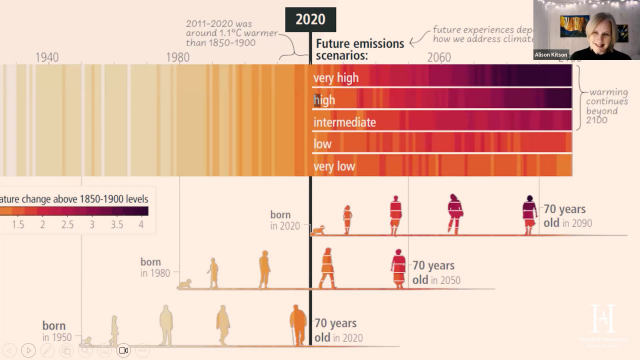Recorded webinar: Secondary history and the climate crisis

How can secondary history help children understand and respond to the climate crisis?
How might we integrate a focus on our relationship with the natural world through time in our existing curriculum? Why should we teach about key turning points in human history that have shaped this relationship in profound ways? What is history's role in explaining how we got to this point?
In this recorded webinar Alison Kitson and Michael Riley explore how we can introduce themes into the history classroom that relate to the planetary crisis and the pressing need to live more sustainably. They consider how to help young people connect the past, present and future and how to use teaching approaches which make the learning engaging, manageable and hopeful.
Teaching for sustainable futures
Would you like to do more to support young people’s understanding of the climate crisis? University College London’s Centre for Climate Change and Sustainability Education has launched Teaching for Sustainable Futures, a free online professional development programme for teachers.
Endorsed by the HA, the programme includes specific modules for primary and secondary which help you to embed relevant issues about nature, climate change and sustainable living into your history teaching, and offer practical ways to embed an environmental perspective into existing schemes of work.
Coming later this term are additional modules which explore environmental aspects of commonly taught topics: Stone Age to Iron Age (primary) and the Industrial Revolution (secondary).
This resource is FREE for Secondary HA Members.
HA Members can sign in to access this content or you can Join the HA if you are not already a member.

